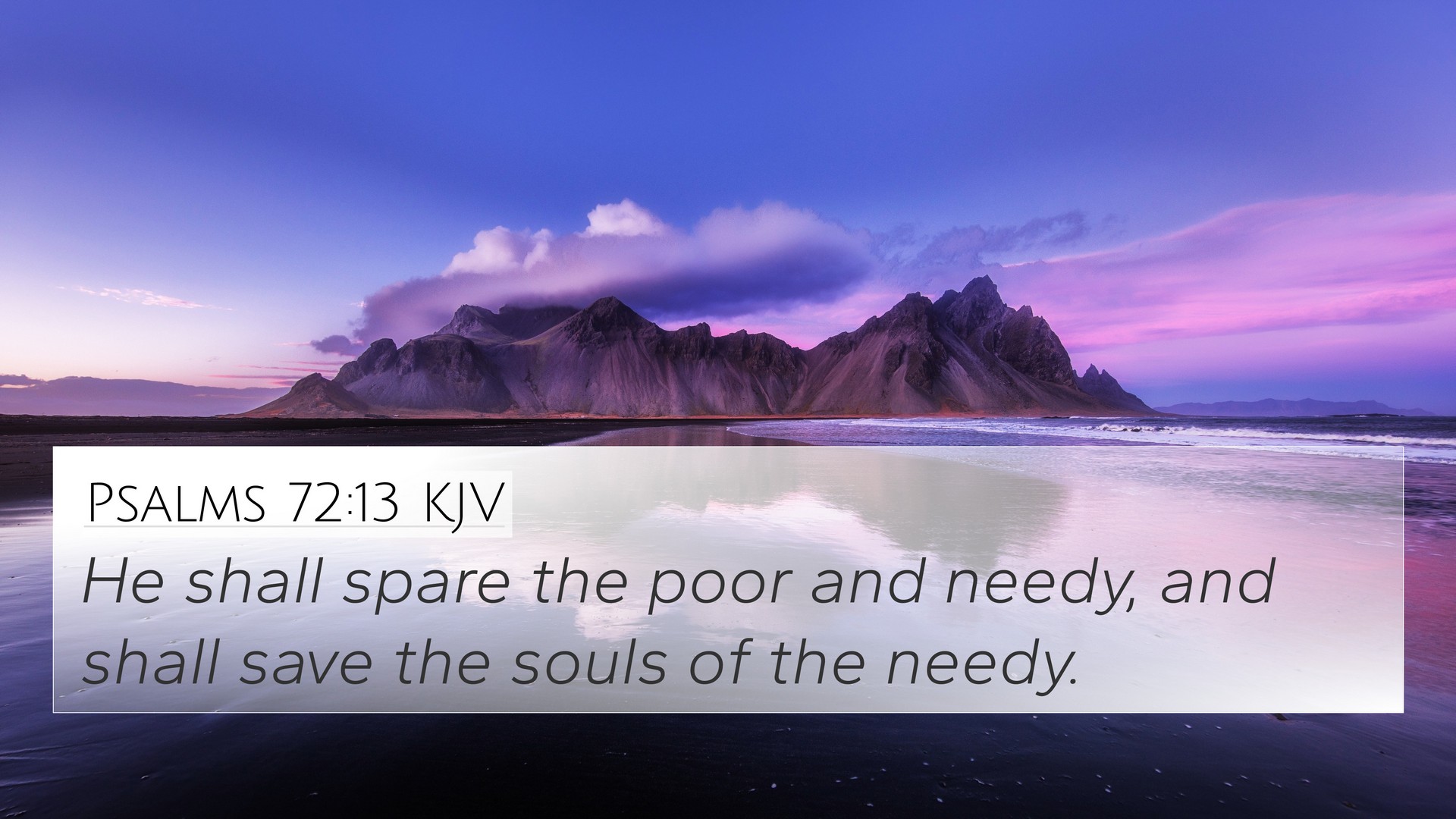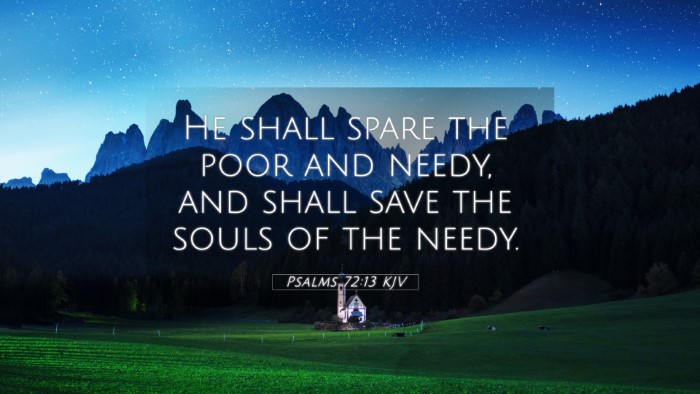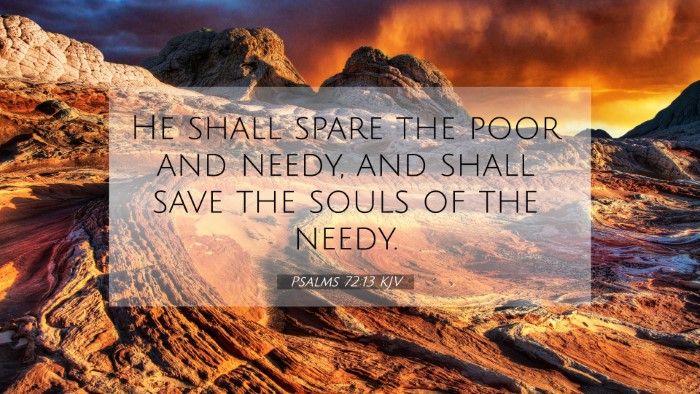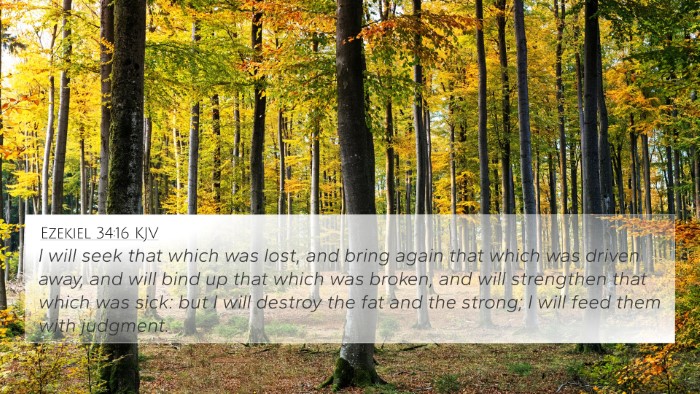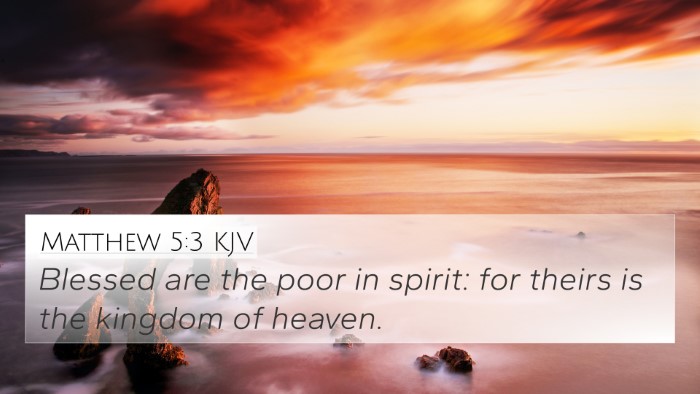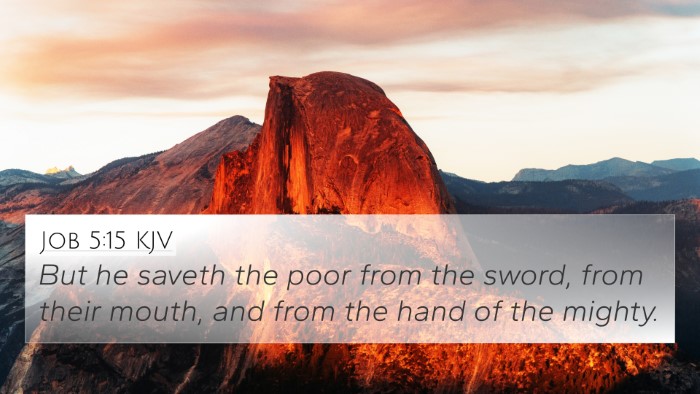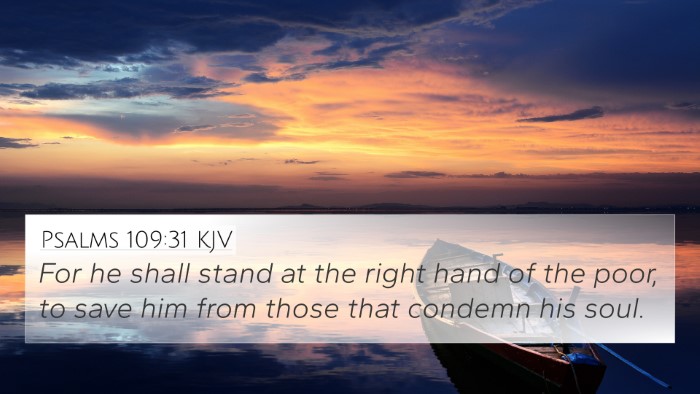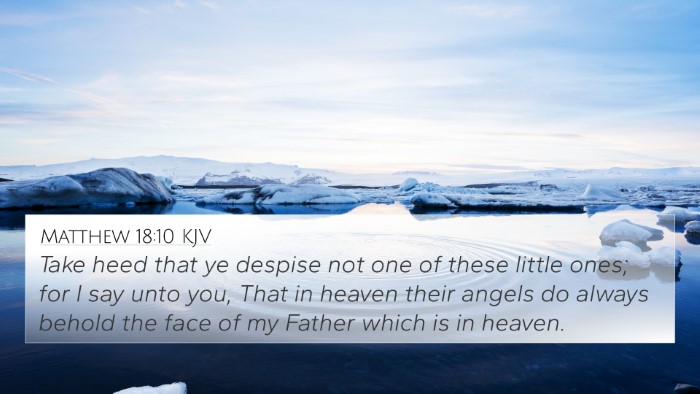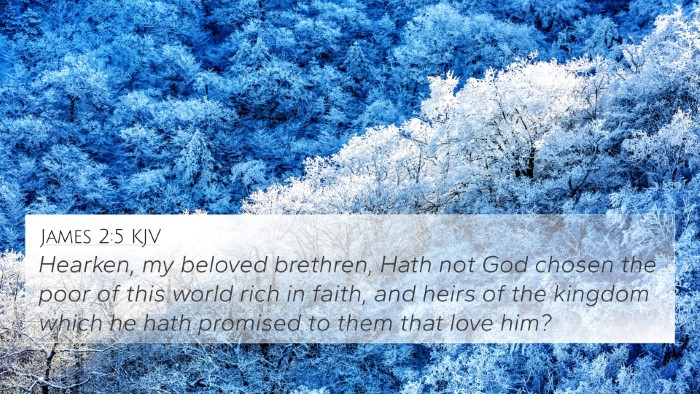Understanding Psalms 72:13
Psalms 72:13 states:
"He shall spare the poor and needy, and shall save the souls of the needy."
Overview of the Verse
This verse highlights the compassion and care of a righteous king, emphasizing his duties towards the poor and needy. The psalm is traditionally attributed to Solomon and speaks to the ideal characteristics of a godly ruler, who embodies justice and equity.
Thematic Connections
Within Psalms 72:13, several key themes emerge, which can be explored in conjunction with various biblical texts. Below are some relevant Bible verse cross-references that share thematic elements with this verse:
- Proverbs 14:31 - "He who oppresses the poor shows contempt for their Maker, but whoever is kind to the needy honors God."
This verse parallels the compassion described in Psalms 72:13, emphasizing the moral obligation to care for the disadvantaged.
- Isaiah 11:4 - "But with righteousness he shall judge the poor, and decide with equity for the meek of the earth."
This reflects the judgment applied to the needy, aligning with the protective nature noted in Psalms 72:13.
- Matthew 25:40 - "And the King will answer them, ‘Truly, I say to you, as you did it to one of the least of these my brothers, you did it to me.’"
This New Testament connection reveals the ongoing divine mandate to serve the needy.
- James 1:27 - "Religion that God our Father accepts as pure and faultless is this: to look after orphans and widows in their distress."
This instruction underscores the importance of caring for the vulnerable, similar to the themes in Psalms 72.
- Luke 4:18 - "The Spirit of the Lord is upon me, because he has anointed me to proclaim good news to the poor."
This verse highlights the mission of Jesus reflecting the same characteristics of compassion outlined in Psalms 72:13.
- Matthew 11:5 - "The blind receive their sight, the lame walk, and lepers are cleansed, and the deaf hear, and the dead are raised up, and the poor have good news preached to them."
This again emphasizes the concern for the needy that is consistent throughout scripture.
- Zechariah 7:10 - "Do not oppress the widow or the fatherless, the foreigner or the poor. Do not plot evil against each other."
This exodus from oppression complements the mercy portrayed in Psalms 72:13.
Interpretations from Commentaries
Insights from several notable public domain commentaries provide deeper understanding:
Matthew Henry
Matthew Henry notes that the ruler's duty includes protecting the vulnerable and considers it an essential quality of leadership in the kingdom of God. He remarks that true kingship involves mercy.
Albert Barnes
Albert Barnes elaborates that the term "spare" implies not only the idea of saving but also of providing for and uplifting those who are in desperate need. He insists that such governance should be marked by benevolence and charity.
Adam Clarke
Adam Clarke emphasizes the salvation aspect of the needy mentioned in the verse. He connects it with God's overarching kindness and the messianic expectation where help is extended not solely in physical terms but also spiritual deliverance.
Cross-Referencing Biblical Texts
Understanding the connections between Bible verses is crucial for a comprehensive Bible study program. Tools for Bible cross-referencing such as Bible concordance and Bible cross-reference guides can enhance the study experience, allowing believers to delve into the interconnectedness of themes found throughout Scripture.
Conclusion
Psalms 72:13 serves as a pivotal text that inspires reflection on the essence of justice and care for the needy, reinforcing the crucial role of benevolent leadership. Exploring cross-references and thematic connections enrich one's understanding and encourages a response to the needs of the vulnerable.
